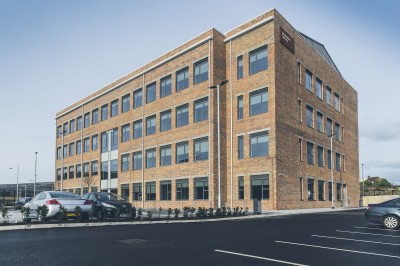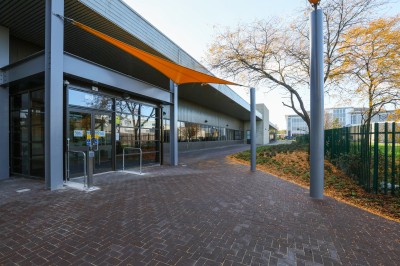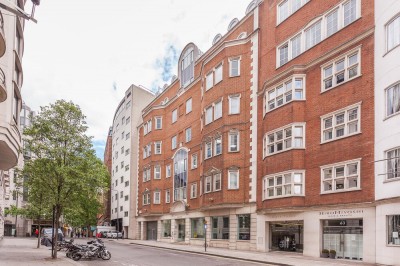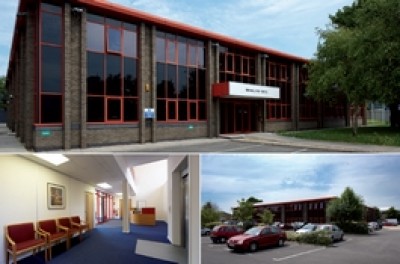While it’s still too early to assess the full impact of the COVID-19 pandemic on the UK economy, one thing is for certain, the road ahead doesn’t appear to be a short one, with plenty of bumps along the way. The nature of this unprecedented situation has thrown businesses into disarray, and business-owners across the UK have been forced to explore different ways of working. In the early days of lockdown, most people I spoke to, usually over Zoom, were quite chirpy at the novelty of having a morning coffee together without leaving their front room, kitchen or home office. As the weeks have gone on, that feeling has evolved to one of restlessness, missing the buzz of the workplace and a growing appetite to return to normal life, albeit tinged with a slight nervousness about what lies ahead.
As business-owners grappled with the idea of their teams working from home, many were left with an office space they were unable to use which gave them the opportunity to review the space they occupy and how best to utilise it in the future. In recent months, offices have started to re-open with significant health and safety measures in place however if these unprecedented times have proven one thing, it is that in order to thrive, businesses must be more adaptable than ever, which naturally highlights one key factor – flexibility.
Over the past decade, flexible office space in London has increased from 0.5% of total office stock in 2009, to 7% as of Q4 2019. Much of this was put down to the 2008 financial crisis, with a vast number of start-ups, as well as more established businesses finding a commitment to a lengthier and more inflexible lease (typically a minimum of 5 years) unjustifiable. So, with many similarities drawn between that downturn and the one expected following the COVID-19 pandemic, we expect in the medium-long term to see a similar shift towards renting flexible offices in London and across the UK.
Within the flexible workspace market itself, perhaps one of the major challenges arising from this pandemic will be the need for flexible office providers to adapt their workplaces to adhere to the social distancing measures that seem likely to be in place for at least the next 6 months. There is also the psychological effects of the pandemic, as reflected in a recent survey carried out by LSH, citing 40% of people sharing concerns about their return to the workplace, especially how to maintain physical distance. Many workspace operators are going above and beyond to protect their clients and work is well underway across the market to prepare a safe, clean and productive working environment to return to. Here’s a look at some of the measures being put in place.
Communal Spaces
Most flexible workspaces will feature a host of shared amenities, including spacious break-out areas, fully stocked and maintained kitchen areas, a manned reception and WC’s, with some buildings also boasting co-working spaces, phone booths, bike racks, showers, lockers, changing rooms, wellness centres, gyms, on-site cafés and outdoor spaces such as roof terraces. While all flexible office operators will apply their own protocols, some of the measures we are seeing implemented across the market include:
- 2m distance to be observed at all times
- Regular, professional deep cleaning of all communal areas
- Health screening: Heat detection via contactless thermometers upon entry
- Hygiene screens at reception
- Use of PPE for all centre staff (some properties may also offer disposable PPE)
- Visitors and occupiers to be directed around building via a one-way system
- Hand sanitizer stations will be positioned throughout
- Increased signage, promoting social distancing and hygiene measures
- Reduced capacity in lifts (likely 2-4 people at any one time)
- Inevitably queues will form for lifts and will be managed to ensure 2m rule is followed and lift lobbies do not suffer overcrowding.
- Some properties will be offering isolation zones to anyone feeling unwell or experiencing symptoms. These areas will be deep-cleaned immediately after use.
- Access to healthcare professionals and on-site anti-body testing.
Workspaces
At least in the very short term, the layout of office space will likely need to be space planned to maintain social distancing, with a likely reduction in density and in the very short term, use of every other desk. Essentially this means if your business occupies a 10 desk office, only 5-6 people will use the office at any one time. For business owners, this is a challenge to overcome and a chance to consider flexible working hours, staff rotation and shift work. Office space providers are already working closely with new and existing clients to space plan their workspaces bespoke to their clients business needs. Within private workspaces, some of the protocols put in place include:
- Bespoke space planning
- Use of every other desk (banks of 6 desks would be used by 3 people)
- Hygiene screens erected between desks
- Additional signage promoting 2m distancing, one-way system and general hygiene
- Increased daily cleaning
- Increased ventilation
- Clear desk policy
- Disposable desk mats
Meeting Rooms
Meeting rooms are still available to hire, with all the usual video conferencing facilities . However, they will be available at a reduced capacity and with longer notice needed to ensure the environment is prepared accordingly. So, what can be expected:
Reduced capacity using every other chair (Meeting room for 6 is now for 3)
- Book as early as possible
- Deep cleaning will take place after every meeting
- Clockwise movements around the meeting room table
- Bring your own stationary
- Additional signage
- Increased ventilation
- Hand sanitizer will be provided
Of course, there will be some trepidation as the engines of the economy are fired up again, with workers understandably cautious as they gradually venture back into the workplace but rest assured, flexible workspace is rising to the challenge, safeguarding its clients and visitors above all else and ensuring a safe working environment for us all to return to.
Over the last 10 years, we have procured office space for hundreds of businesses, from start-ups and growing SME’s to large global organisations. For more information on renting flexible office space in London or across the UK, get in touch with one of our experienced team.







